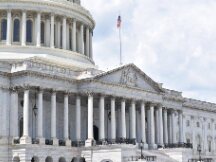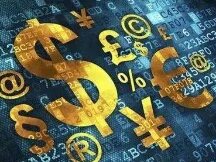Can Latin America escape the hegemony of the US dollar, a digital currency test site?
Digital advantages emerged as a product of the innovation of the times. Why digital results? What is the situation in the country which is the first attempt at the digital currency market? What are the future trends of the financial model?
For banks around the world, digital rewards are also a new experience that "crosses the river with the appearance of rock". The view is bright, but there is still some uncertainty. This free publication marks the start of last year's "Globalization of Digital Currency" publication, offering readers a fresh perspective on digital currencies around the world.
Besides China, there is another region of the world that is at the forefront of digital currency diffusion, Latin America.
In October 2020, the Central Bank of the Bahamas began issuing Sand Coins nationwide, making Sand Coins the first digital bank to be recognized by communities around the world.
Already in November 2017, the Central Bank of Uruguay led the launch of the e-Peso project, the world's first large-scale digital pilot project. In April of this year, the Eastern Caribbean Central Bank also launched an electronic D-money trial.
In addition to the fiduciary benefits, many Latin American countries have also tried a variety of different digital benefits.
On September 7, El Salvador became the first country in the world to recognize Bitcoin as a viable option. Cuba Complies with Law The Central Bank of Cuba announced on September 15 that a cryptocurrency regulation has come into effect. Cuban business licenses related to finance.
Interestingly, the digitization of legal tender in Latin America began in 2015.
In February 2015, Ecuador introduced an “electronic money system” and an “Ecuadorian coin” based on it. In March 2018, due to its low credibility, it did not benefit the country after its release, and at the end of March 2018, the Ecuadorian currency was forced to stop working.
Why is Latin America a testing ground for “multicultural” digital values?
What about Venezuela after the introduction of oil?
Venezuela has already gained popularity around the world with the introduction of Petrocoin.
Venezuela also hopes to use digital currency to evade US-led financial sanctions and, in February 2018, announced the world's first digital currency law "Petro" (with law enforcement) to promote the country's economy losing money. As the economy collapsed, Venezuela's best interest, the bolivar, was devalued by almost no value. When inflation is at its worst, prices go up to 1000%.
What changes have taken place in the Venezuelan economy after the introduction of Petrocoin?
Pascualina Curcio, professor of economics at Simon Bolivar University in Venezuela, said that in order to identify the effects of using oil, we must first examine its role. Initially, its purpose as a virtual currency was to bypass the US government's financial sanctions against Venezuelans. Since then, Petro coins have been able to function as a price indicator and market value. As Venezuelan, Bolivar interests were tight, leading to hyperinflation, large amounts of money were invested in petrocoins. Despite the oil gains, the US government maintains and even tightens financial sanctions against Venezuela.
On February 21, 2018, Venezuela announced the cryptocurrency “PetroCoin” and finalized a budget of $ 735 million on the first day of the sale. With 1 barrel of crude oil as full collateral, the total cost is over $ 6 billion.
Venezuelan President Maduro announced that in the future Petrocoin will become a national account of the world.
According to Curcio, the use of the Petrocoin value due to tourism is minimal and the fiat value in tourism is Bolivar. Today, the relationship between the bolivar and the Petro currency has reached $ 182 million due to the exchange rate.
Will cryptocurrencies or digital advantages help Latin America end the financial hegemony of the US dollar?
Curcio said the global dollar has depreciated, whether in the form of currency, e-money, or virtual, however it has caved in. Woods Agreement 1944 and 1971 US dollar unilaterally proclaimed a decoupling of gold. The point is who will manage these virtual currencies and who will manage their use in the context of the return of world markets, and we hope that this 1944 mistake will never happen again.
In September 2020, Venezuela devalued the US dollar and determined oil prices in oil prices. In the eyes of the outside world, Venezuela's second fiat currency, the Petro, not only failed to improve domestic exchange rates and devaluation, but also suffered from a "what and how" bottleneck. 'use ". The Venezuelan government's hopes for Petro are difficult.
However, Curcio believes that the cause of inflation is the market's control of exchange rates, as the exchange rate of the bolivar against the US dollar is the value of Venezuela's domestic market. In 2013, the US dollar was still 8 against Bolivar and now it is 3.2 billion. In order to prevent inflation in Venezuela, we must end the financial sanctions against Venezuela. Fuel's full role as a measure of value can help avoid the penalty for the bolivar and at least make it less vulnerable to buying gears.
Petro's pros are Venezuela's attempt to raise international funds as the impact of rising debt and the mounting Western financial crisis hits to break American financial blockades and deal with the crisis. Currently, there are many loopholes and loopholes in Petrocoin, and although the promotion process seems insufficient, this Venezuelan experience will be useful for countries which are still affected by European and US sanctions and for those who want to keep the global currency. . diverse.
Wang Feng, co-director and co-author of a million-dollar development project at the Latin American Institute of the Chinese Academy of Sciences, told the Book that the countries of Central America are divided and governed as regions. By the power of the great powers and strong colonial colors. Countries like Venezuela and Cuba are fighting to end their dominance in North America, which should treat the United States as an "enemy".
el Salvador dictator
Ecuador is the first country in Latin America to experience digital advantages.
In February 2015, Ecuador developed an “electronic money system” and an “Ecuadorian coin” based on this system. Ecuadorian currency is administered directly by the central bank and regulates exchange security, these measures are also measured in accordance with Ecuador's ongoing “de-dollarization” measures.
Unfortunately, the Ecuadorian currency, which has not been popular in the country since its introduction a year ago and cannot be used by the public, is expected to be phased out by the end of March 2018.
By the time the Bahamas announced their central bank digital currency "sand money" in October 2020, the first company in South America to recognize international currencies was born.
In its report “Next Phase: Megatrends and Financial Institution Ratings” published in November of last year, Fitch pointed out that there are clear guidelines for improving the financial system in Latin America. . Financial services and financial services are not in the bank.
In an interview with The Paper, Fitch analysts Monsur Hussain and Duncan Innes-Ker said digital banking is often the more attractive of the two regions. Bad private business, other fields that help consumers and businesses fear that the transition from a private company to digital benefits or private companies to control financial information could affect the security of invisible finance.
Are the Financial Benefits of Digital Banks Helping Latin America Break the Dollar?
HSBC international researcher James Pomeroy told the newspaper it was about benefits rather than finances. If more than half of the region's wages were paid in cash, and this could change with a less profitable design, it would be beneficial for social and economic development. Businesses can cut costs, cut costs, and pay more, and consumers can use a variety of digital financial products. At the same time, the digital banking sector can provide the central bank with new financial and monetary policy tools, which can support the growth of the sector.
Pomeroy also noted that using cryptocurrency as a payment method is associated with higher levels of consumer trust in central and government banks, but puts his currency upside down and operating costs. high, it has been widely used as a payment method for the ensemble. industry.
Global attention this summer is on El Salvador, a small country between Mexico and South America with an area of less than 200,000 square kilometers.
El Salvador became the first country in the world to recognize Bitcoin as a viable option. The Salvadoran Parliament passed the “Bitcoin Act” on June 9, allowing Bitcoin to become the national fiat currency. Before that, the country would only have been known for its coffee beans and the many refugees fleeing to North America.
El Salvador is the fourth largest coffee producer in the world and a producer and exporter of quality coffee. El Salvador, one of the triangles of northern Central America and economic growth. Meanwhile, according to World Bank data, the dollar includes countries in Central America that already have one of the world's lowest remittances to the United States.
Li Yang, director of the National Finance and Development Laboratory and a member of the Chinese Academy of Social Sciences, previously said countries like El Salvador would accept Bitcoin. , the creditworthiness of the US dollar also declined. However, the long-term stewardship of the US dollar in the global economy has made its temporary elimination impossible, especially in small countries.
Zhang Jie-yu, a researcher at the Institute of International Studies of the Latin American and Caribbean Institute of China, wrote an article on the cash-strapped Salvadoran economy. The reason President Booker has now become a "pioneer" of the Bitcoin law is separated by the image of "strong" in home affairs and diplomacy created by the president himself. One is due to the need for industrialization. Second, it can be seen that Booker's response has been firm to the recent strengthening of relations between the United States and Samoa. The third is to improve the integration of home finances.
According to a report by the Central Bank of El Salvador, 70% of residents of El Salvador have not yet opened a bank. This means that 7 out of 10 people will not be able to access traditional financial services. However, almost 70% of teens have a cell phone connection.
However, El Salvador's decision was not supported by the international community. Rice, spokesperson for the International Monetary Fund (IMF), said the use of Bitcoin as fiat in El Salvador could lead to serious macroeconomic, financial and legal issues that need to be carefully considered.
Moody's International Monetary Fund (IMF) issued a statement claiming that the use of Bitcoin could jeopardize the security of El Salvador's finances and lead to skepticism in financial discussions with the IMF. Fitch Ratings also announced that Bitcoin exhibits similar characteristics to surveillance issues. Salvador's government decision made the country a source of money laundering and terrorist money laundering, Central America crime fundraiser and finance. compromise the security of the system.
Wang Peng thinks that while El Salvador now seems to have more independence, it is no different from other Central American countries. The pattern of relations between these countries has not changed for the better. Although he appears liberal, he has strong ties to Europe and North America. Small nations must unite for independence and abolish the rule of the great powers. They must strengthen their relations with Asia and China to be successful in the world.

Scan QR code with WeChat







